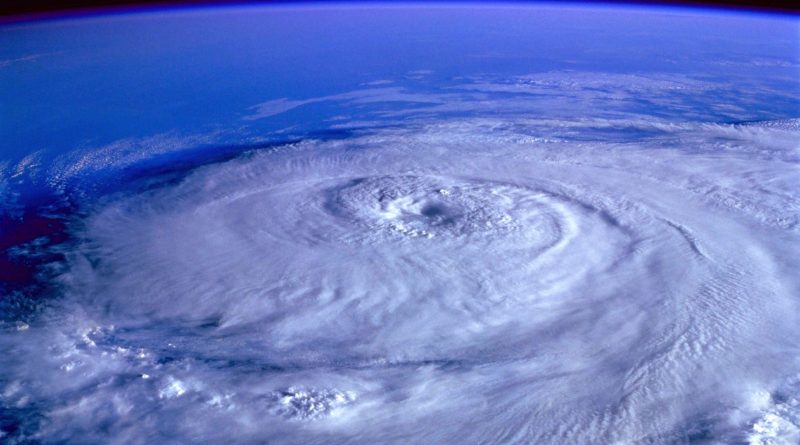We Are Still in Hurricane Season, be Ready for Hurricanes, Extreme Weather.
It’s still hurricane season in the Atlantic region and Nova Scotians are reminded to be prepared for storms and extreme weather events before they happen.
“We’re seeing more frequent and intense storms. The best time to prepare is before a hurricane or extreme weather event happens,” said John Lohr, Minister of Emergency Management. “Taking steps to make an emergency plan will help ensure your home or business is ready whenever severe weather affects our province – during hurricane season or any time.”
A hurricane’s strong winds and heavy rain can cause power outages, storm surges, flooding and property damage. Monitoring credible weather resources and staying informed about local forecasts can help to minimize risks.
People can get ready for storms and extreme weather by:
- having an emergency kit with food, water, medications, important documents and supplies to last for several days
- preparing property by trimming trees, securing loose items and clearing gutters and storm drains
- checking home or business insurance coverage
- making an emergency plan and practising it to be ready if an evacuation order is issued.
While hurricane season has been less active than expected so far, Environment and Climate Change Canada advises that activity could increase late September into October. Historically, many of the country’s more impactful storms have occurred after peak season so it’s important that Nova Scotians remain on guard.
Official hurricane alerts, weather warnings and forecast updates can be found on the WeatherCAN mobile application and at: https://Canada.ca/weather
Quotes:
“We encourage everyone to take the time to prepare for extreme weather events like hurricanes since they can happen anytime and anywhere. The Canadian Red Cross appreciates the opportunity to work again with our emergency response partners to support personal and household preparedness during hurricane season. Nova Scotians can visit redcross.ca/ready for essential tips and tools to ensure their families are better prepared for disasters before they strike.”
— Bill Lawlor, Vice-President Atlantic, Canadian Red Cross
“We work with our emergency response partners throughout the year to make sure we have the best plans in place for storm season. This, along with the reliability work we do in communities across the province every day to strengthen the grid, ensures we are ready to support our customers, no matter what weather hits the province.”
— Matt Drover, Senior Director, Energy Delivery, Nova Scotia Power
“The resiliency of our telecommunications networks is critical during extreme weather events in Nova Scotia. Since hurricane Fiona, Bell has invested $20 million to install an additional 275 fixed generators and increase battery backup to critical cell towers and wireline sites across Atlantic Canada. Adding fixed generators means critical sites will automatically switch to generator power if commercial power is lost during a major storm. We know our customers depend on us to stay connected and informed and our teams are actively engaged in the preparations for rapid response to minimize the impact of these events this season.”
— David Joice, Director of Network, Bell
“Our first priority when storms impact our region is to ensure emergency 911 services and other essential communications on our network by working in close collaboration with our partners, including EMO and NS Power. In preparation, we conduct comprehensive planning activities including driving our key fibre routes to address any possible issues, ensuring we have sufficient supply of fuel and network repair equipment, and preparing our field, technical and support teams for recovery. In addition, we continuously invest in strengthening our networks (fibre and mobile) and backup systems including the addition of more backup generators and more mobile sites among other measures.”
— Crissy Baillie, Senior Director, Field Operations Support, Eastlink
“Over the last five years, TELUS has spent $125 million to plan and respond to emergencies like hurricanes, floods and wildfires, protecting our networks, and investing to minimize the impact on affected communities. In Nova Scotia, we deploy critical equipment to maintain service such as generators and batteries to keep customers connected and we provide donations to support communities hit by these weather events. We also work closely with our critical infrastructure partners and the Emergency Management Office, both in advance and during climatic event responses, and we remain prepared to participate in person in the provincial meetings.”
— Phil Moore, Vice President, Business Continuity and Emergency Response, TELUS
“We know how important it is to stay connected during extreme weather events and have been focused on strengthening our network resiliency in the province, including our recent investment with Build Nova Scotia to close gaps in wireless coverage and improve public safety in rural and remote communities of Nova Scotia. We are also preparing by ensuring backup power and replacement equipment are available in key areas and are ready to be deployed quickly, and our technicians are prepared to respond efficiently and safely. We will continue to work closely with local and federal officials to assist each other where possible during extreme weather events.”
— Carole Santerre, Vice President, Network Operations, Rogers
Quick Facts:
- hurricane season runs from June to November, with Nova Scotia typically experiencing peak storm activity in late August and September
- municipalities are responsible to have an emergency management plan in place and lead the response to events in their areas
- the new Department of Emergency Management was announced in March to lead, direct and support a co-ordinated response and help meet the needs of Nova Scotians in a crisis or disaster
- the Nova Scotia Guard, made up of volunteers from across the province, was announced at the same time to help communities during and after emergencies
- people interested in helping with disaster response can volunteer for the Nova Scotia Guard at: https://nsguard.ca/
Source : Provincial Release




